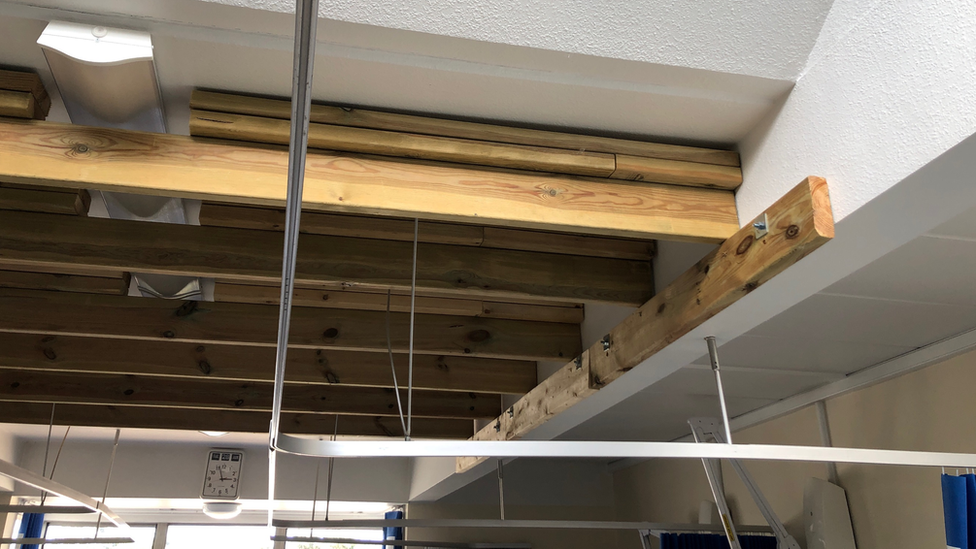Uni spends £2m fixing Raac but some halls stay shut
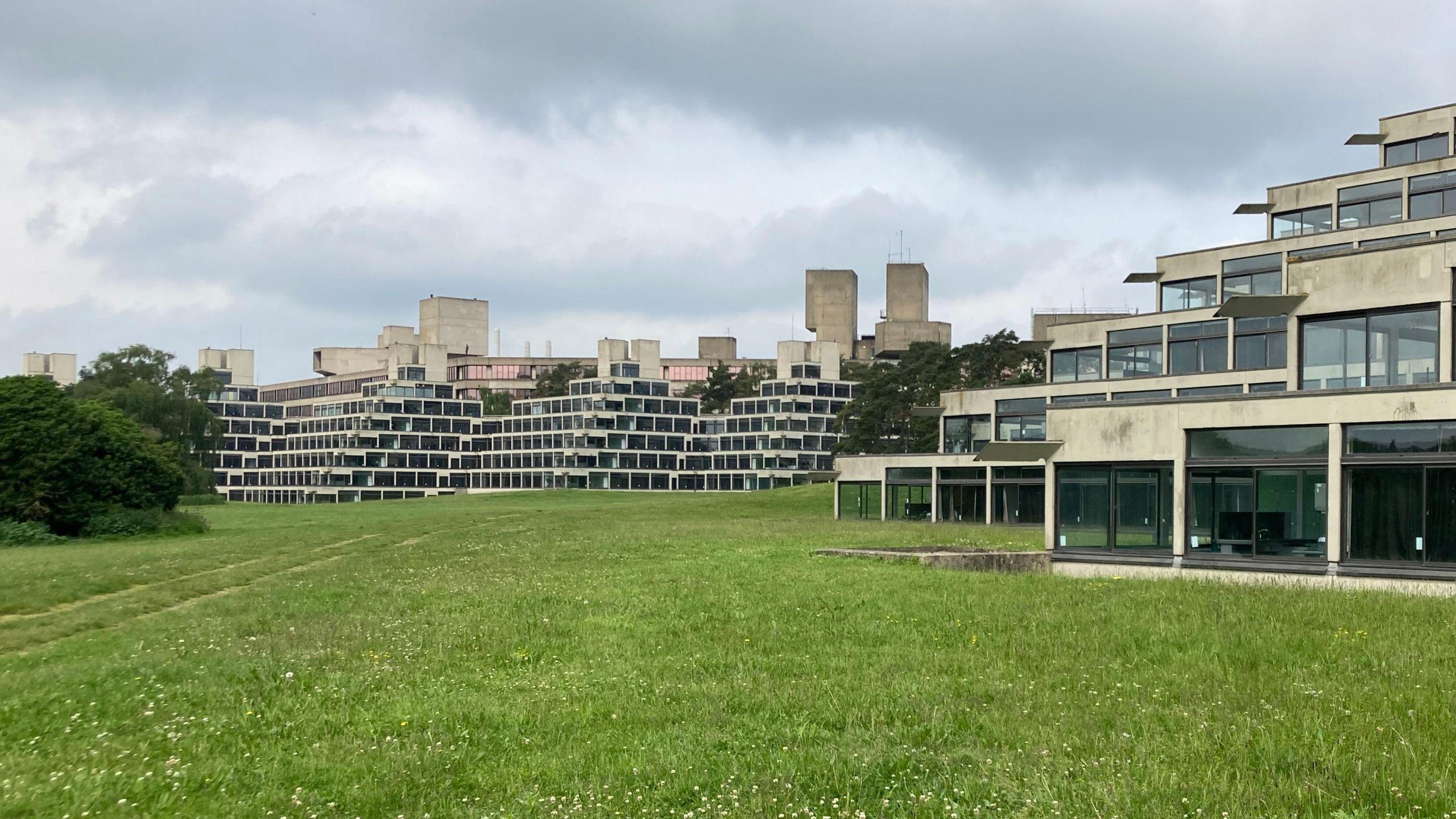
The UEA says all 75 roofs on the Ziggurats, which is an award-winning, Grade II-listed accommodation, were built with Raac
- Published
A university which closed some of its halls of residence over unsafe concrete fears said it had spent £2m on remedial work.
Reinforced autoclaved aerated concrete, known as Raac, was found in four types of accommodation at the University of East Anglia (UEA) in Norwich, Norfolk, in September.
Government guidance meant the university had to find alternative accommodation for about 750 students, both on and off campus.
The UEA said while it was set to reopen three buildings by September, its iconic halls of residence, known as the Ziggurats, which has 600 rooms, would remain closed until further notice.
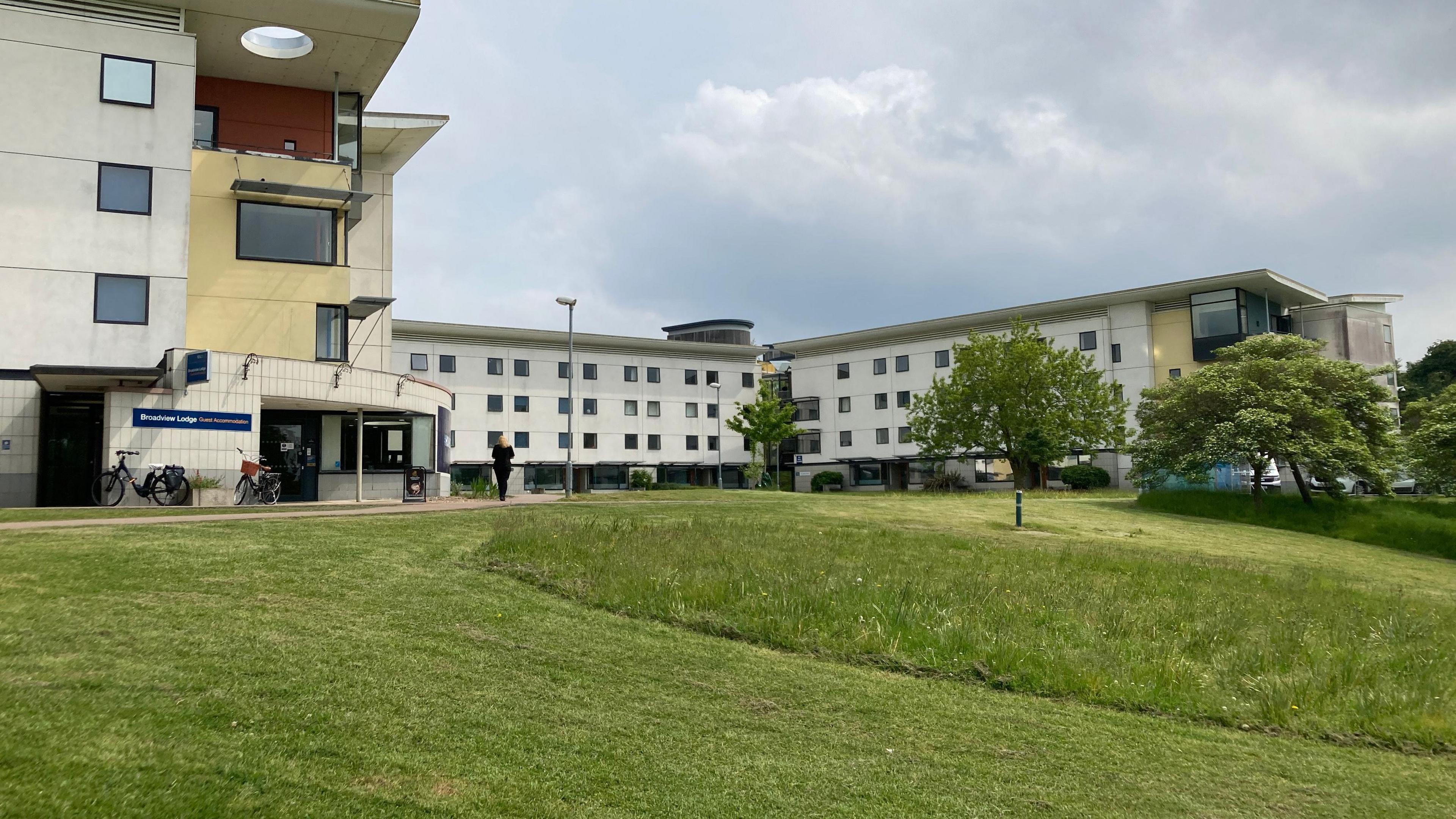
Three accommodation blocks that contain Raac are expected to reopen in the coming weeks
Senior leaders said they were still consulting on its future and that two options were being considered.
One involved installing temporary structural supports to "get it back in use", while the other sought a more permanent solution which involved removing Raac from 75 roofs and replacing it with a stronger material.
"The challenge we have is going to be the funding of the physical, larger project if we do a permanent solution," said Stephen Wells, the UEA's director of estates and facilities.
"As yet we don't know how much that would cost but it would need to be signed off by Historic England and the local planning authority."
The Ziggurats, officially named the Norfolk and Suffolk Terrace, is an architectural award-winning, Grade II-listed, accommodation, external which was constructed in the mid-1960s.
"An interim project would be a safe solution but we need to work out whether our students would actually want to stay in the buildings if we did that," Mr Wells added.

Mr Wells said replacing or reinforcing Raac is about "paramount safety"
Since September, the UEA has carried out remedial work on the top floors of Nelson Court and Constable Terrace, as well as Broadview Hotel - the university's guest accommodation.
Raac was found to be used as a type of insulation above the ceilings, predominantly in corridors.
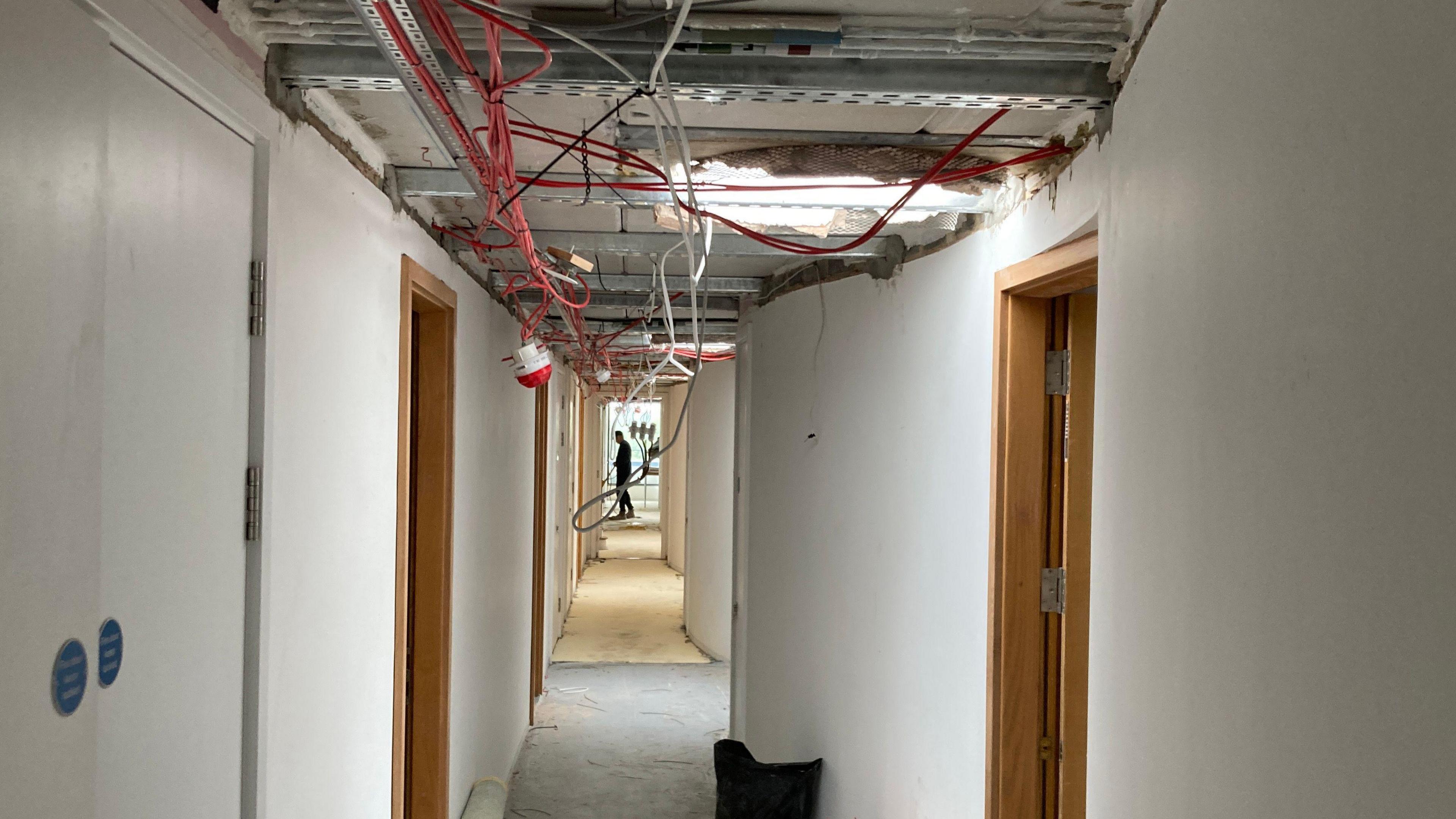
Additional structural supports have been added ceilings in three accommodation blocks
The UEA said builders had installed additional structural supports to meet standards set out by the Institution of Structural Engineers.
The university hoped to have Nelson Court and Constable Terrace fully reopen by September, reinstating about 160 student bedrooms - while Broadview Hotel is expected to reopen in June.

Mukuka Jumah was among 750 students who were moved into alternative accommodation in September
Students that were relocated in September praised the UEA for taking "swift action".
"I think I was quite lucky where I was put as I have an ensuite room and living closer to the 24-hour Tesco has been very useful," Mukuka Jumah, a 19-year-old first-year drama student, said.
"I think I enjoyed my time at uni a little bit more, as I was more comfortable than maybe I would have been."

Poppy Wyeth lived in the Ziggurats during her first year at the UEA
Poppy Wyeth, 20, a second-year English literature and philosophy student, said she was also moved from the Ziggurats and into ensuite accommodation.
"Where I live now is a bit of a bonus because I'm paying the same price for Zigs but with better facilities.
"The kitchen is much bigger and better, and the location as well."
Follow Norfolk news on Facebook, external, Instagram, external and X, external. Got a story? Email eastofenglandnews@bbc.co.uk, external or WhatsApp us on 0800 169 1830
Related topics
- Published13 September 2023
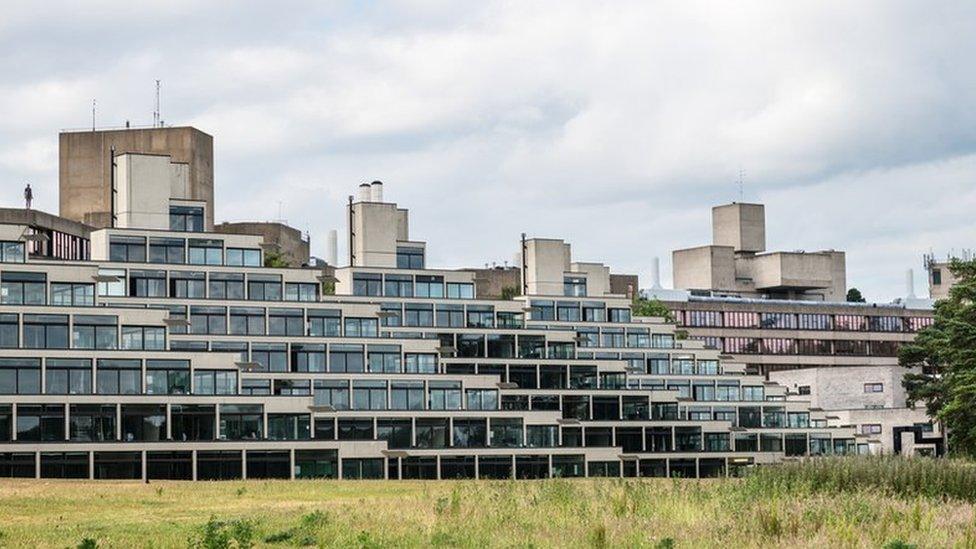
- Published4 September 2023
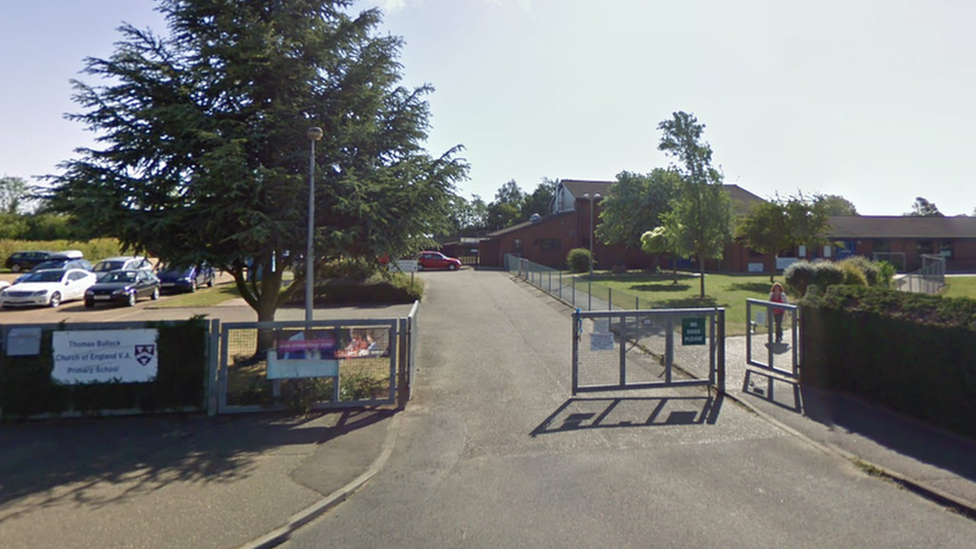
- Published13 November 2022
